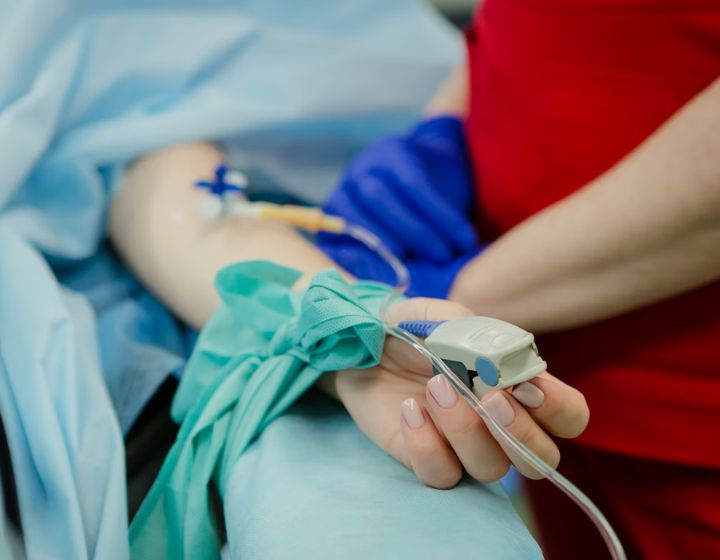
 Post Category - ParentingParenting - Post Category - Older KidsOlder Kids
Post Category - ParentingParenting - Post Category - Older KidsOlder Kids‘My mother lost consciousness alone in her home and was rushed to the ICU. Part of me was terrified I was going to lose her before we ever had the chance to build something real between us. Even with our strained relationship, I ended up becoming her caretaker.’
“Mummy’s on the way to the hospital. She had a bad fall,” read the message from my brother at 2pm on a random Tuesday.
Was it serious? “Yes. She had apparently been unconscious since 4am.”
Since 4am? But it’s 2:34pm now. You mean … she was lying there, alone and unresponsive, while I was fast asleep in my bed? When I was scrolling through breakfast options at 9:30am? Taking meetings, texting my husband about lunch plans at 11am…
She was unconscious. I was comfortable. She was helpless. I was unaware. And that’s when the guilt kicked in.
I suddenly came to a realisation at that moment: To show up for a mother who never really knew how to show up for me. But what do you do when life forces you into the role of caregiver before your heart is fully healed?
I felt guilty before I even felt worried

My relationship with my mum has always been complicated. And when faced with this emergency, I immediately started blaming myself–a habit that I’d picked up over the years, courtesy of my mum. During the entire journey to the hospital, I could hear my inner demons fighting and screaming in my head: Was this MY fault? What was I supposed to feel?
I grew up learning to overthink, to assume I was always the problem, to carry guilt even when it wasn’t mine. I had always questioned myself, searching for what I might have missed or done wrong. My mum’s praise was rare and precious, like gold. But her criticisms? Constant, like rain. Always falling. Always stinging.
And in that moment, staring at my brother’s text, trying to piece together the hours she spent alone, I couldn’t help but wonder: Had I been too detached? Too caught up in my own healing to sense that something was wrong?
And maybe that’s what hurt the most. Not just that she had a fall and lay there for hours after, but that I hadn’t known. I hadn’t sensed anything. I hadn’t even thought to check in on her like any adult would check in on their senior-aged parents. Worrying about her had never been part of my instinct. So, did that mean I had stopped caring?
“She’s a ‘mum’ at work. But not at home?” – The weight of showing up

Maybe somewhere along the way, I also failed to realise that my mum was ageing too. The same mum who made sure we always had food on the table and bills paid, but who struggled deeply with emotional connection. And now, here she was: vulnerable, dependent on the very child she never quite knew how to nurture emotionally.
When I reached the hospital, my heart was pounding. My brother was already there.
He told me the police had called him earlier and that they were contacted by my mum’s boss, who sensed something was off after she didn’t show up for work or answer her phone. The police had to break into the house. They found her lying in a pool of blood, unconscious. My brother broke down in tears, fearing the worst. But thankfully, she had regained consciousness and was rushed to the hospital in time.
To this day, we’re incredibly grateful to my mum’s boss, who went out of his way to make sure she was alright. “She’s like a mum to us at work,” he had said. “Always checking in, making sure everyone’s okay.” And even in the midst of that relief and gratitude, I felt that familiar sting in my chest.
She’s a “mum” at work. But not at home?
I brushed it off, as I always did. Numbing myself to things I should probably feel more deeply.
I met my mum in the emergency department, and she was paralysed, lying on the hospital bed. She looked like a shadow of the woman I knew. The same woman who used to nitpick the way I dressed and the way I spoke. Now, she just looked … small. Fragile. Human.
I was feeling so many things at once that it was hard to make sense of. Part of me was terrified I was going to lose her before we ever had the chance to build something real between us. Another part of me was angry. Was this going to be another way for her to make me feel guilty? And then there was the crushing guilt that I hadn’t done more. That I hadn’t been there, that maybe I had failed as a daughter.
Stepping into the role of caregiver to a mum who never knew how to care for me

That day probably saw the most words exchanged between my mum and me in nearly 15 years.
We talked a lot, mostly about how she was feeling physically. The conversations were careful, like walking on eggshells. I think, in her own way, she might have been reaching out for connection. But I also knew she was still unaware of the emotional impact she had left on me over the years. And even if she wanted to repair it, she never had the emotional tools to build that kind of bridge.
I found it almost hilarious because even in that state, she still knew how to push my buttons. The moment I got there, she was rattling off instructions: do this, follow up on that, call this person, contact that organisation. It was as if she just assumed I’d drop everything to prioritise her, given the circumstances.
The next few weeks were really stressful. I had to take on the role of caregiver while still handling work and being a mum.
I was taking multiple calls a day from the hospital’s doctors, updating me on her condition, asking me to make quick decisions I didn’t feel equipped for. She gave me a list of things to bring her: phone chargers, oats, moisturisers, AKA items that seemed trivial, but became urgent in her world. Every morning, I made a 30-minute journey to and from her house to feed and care for her cats and clean the place (and I’m allergic to cats.) She also asked me to call organisations and lawyers to sort out her bills and other admin matters.
All this while I was also caring for my baby at home, who couldn’t go to school because of suspected HFMD. He was clingy, unwell, and needed me constantly. And somehow, through all of this, I still showed up for work and did my job.
Accepting closure without resolution
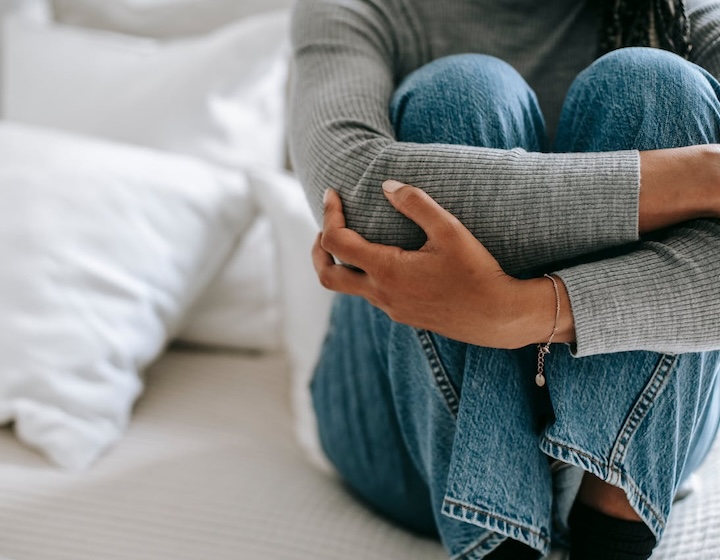
Somehow, even with all the resentment and pain, I found the strength to offer the kind of care I had longed for but never quite received from her. I set boundaries. I adjusted expectations. I tried to protect my own peace while still keeping her well-being in mind. I answered every hospital call. I kept her updated, even when I wanted to shut down. I made sure she had everything she needed, from her meds to her meals. I checked in on her, not just out of duty, but to let her know she wasn’t alone.
Since then, I’ve come to realise that caring for her, despite everything, could also be a form of healing for myself. It’s so complicated because tending to her needs has stirred up old wounds and emotions that I’m still working through. But for now, I’m choosing to compartmentalise that pain. I’m not ignoring it entirely, but I’m focusing on what’s urgent, which is her health and well-being.
I’m sorry if you expected a different ending. My mum and I are not suddenly okay; there hasn’t been any big reconciliation or resolution. But something shifted. I showed up. I stayed. And maybe, that’s a kind of love, too.
Read more:




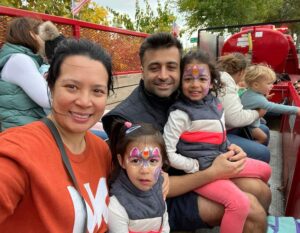

 View All
View All





 View All
View All






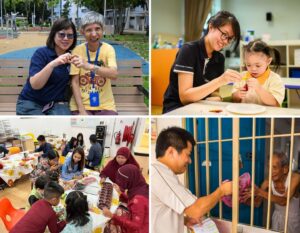



 View All
View All


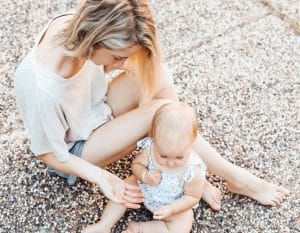

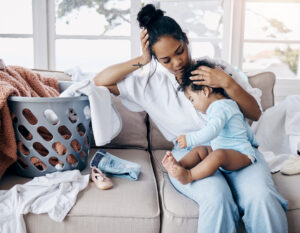
![[𝗙𝗜𝗥𝗦𝗧 𝗟𝗢𝗢𝗞] 𝗧𝗵𝗲 𝗢𝗻𝗹𝘆 𝗛𝗮𝗻𝗴𝘆𝗼𝗱𝗼𝗻-𝗧𝗵𝗲𝗺𝗲𝗱 𝗜𝗺𝗺𝗲𝗿𝘀𝗶𝘃𝗲 𝗘𝘅𝗽𝗲𝗿𝗶𝗲𝗻𝗰𝗲 𝗜𝗻 𝗦𝗼𝘂𝘁𝗵𝗲𝗮𝘀𝘁 𝗔𝘀𝗶𝗮 𝗧𝗵𝗶𝘀 𝗛𝗼𝗹𝗶𝗱𝗮𝘆 𝗦𝗲𝗮𝘀𝗼𝗻: 𝗠𝗮𝗿𝗶𝗻𝗲 𝗙𝘂𝗻, 𝗣𝗵𝗼𝘁𝗼 𝗠𝗼𝗺𝗲𝗻𝘁𝘀 & 𝗕𝗲𝗵𝗶𝗻𝗱-𝗧𝗵𝗲-𝗦𝗰𝗲𝗻𝗲𝘀 𝗔𝗯𝗼𝘂𝘁 𝗖𝗼𝗿𝗮𝗹𝘀!! 🪸🤳🫧🪼
𝗪𝗵𝗮𝘁 𝘄𝗲 𝗹𝗼𝘃𝗲:
- Hangyodon Everywhere!! Life-size installations, interactive spots, and quirky themed corners made it such a fun adventure (Including a meet & greet session with Hangyodon?!)
- The giant inflatable Hangyodon installation at the entrance – an adorable, eye-catching welcome that instantly set the festive mood
- Went behind the scenes to learn how corals are cared for and propagated at Singapore Oceanarium (Visitors also get a free exclusive Hangyodon-themed souvenir!)
- Limited-edition Hangyodon-themed Singapore Oceanarium collectibles and themed food and drinks, perfect for Sanrio fans and collectors.
𝗧𝗵𝗶𝗻𝗴𝘀 𝘁𝗼 𝗻𝗼𝘁𝗲:
- Kids have to be 4 years old and above to go for the Animal Spotlight: Corals with Hangyodon behind-the-scenes guided tour
- Animal Spotlight: Corals with Hangyodon run in English at 11am & 2pm, Mandarin at 3pm, lasting about 45 minutes.
- Bring a jacket as it might be cold!
- Meet & greet Hangyodon from 28 Nov 2025 to 4 Jan 2026 at 3PM on Mondays–Thursdays and 12PM & 3PM on Fridays–Sundays and public holidays!
𝗪𝗵𝗲𝗻: Now – 4 Jan 2026
𝗪𝗵𝗲𝗿𝗲: Singapore Oceanarium, 24 Sentosa Gateway, Sentosa Island, 098137
𝗛𝗼𝘄 𝗠𝘂𝗰𝗵: From $35 for child/senior | From $42 for adults
* Animal Spotlight: Corals with Hangyodon - $28* for adult/child/senior (Requires a separate Singapore Oceanarium one-day ticket.)
Comment “Hangyodon” or link in bio for more details on the Hangyodon Marine Discovery @ Singapore Oceanarium](https://www.sassymamasg.com/wp-content/plugins/instagram-feed/img/placeholder.png)
